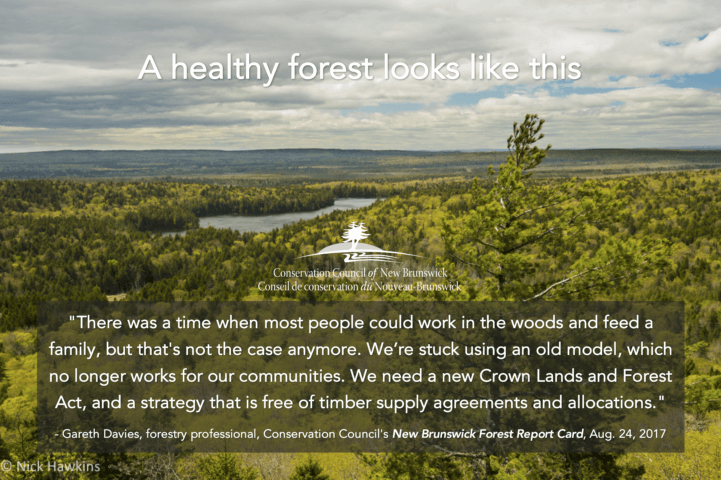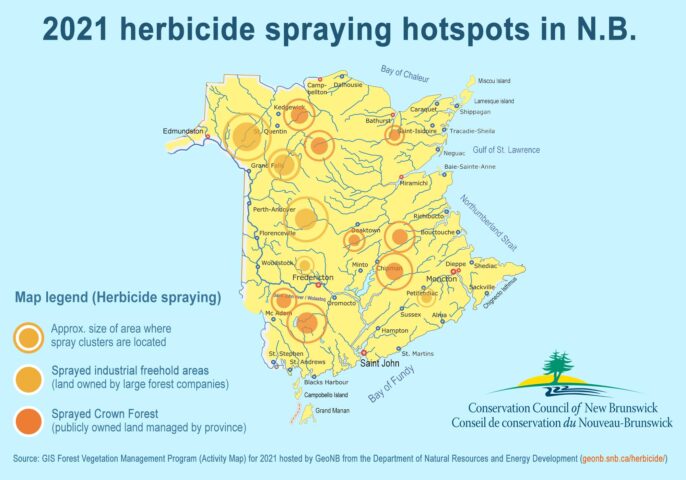Let’s take the herbicides out of the woods and put more people to work in 21st century forestry and silviculture practices that conserve and restore a healthy, resilient and diverse forest!
Where Our Forest Is Being Sprayed This Summer
Check the 2021 map for spraying near you, and use our letter-writing tool to tell officials you want this unnecessary and old-fashioned practice to stop
The map showing where New Brunswick forests will be sprayed with herbicides during summer 2021 is now available.
Forestry companies spray large swaths of clearcuts with products containing glyphosate — a chemical linked to cancer and a slew of other health problems — beginning in August and continued through September.
Our team is poring over the map to help New Brunswickers identify the major spraying hotspots this summer. Stay tuned to this page for updates with maps showing hotspots across the province and within our watersheds.
In June, the Standing Committee on Climate Change and Environmental Stewardship held a week of hearings on glyphosate use in New Brunswick.
Our Executive Director, Lois Corbett, was among the experts, conservation groups, scientists, and citizens groups who spoke out against spraying during the hearing and called for a better approach to forest management in New Brunswick based around ecological forestry.
Below, learn more about what was covered at the hearings, why spraying in the Crown forest should stop, and what you can do to help end this unnecessary and old-fashioned practice.
Speak Out! Send Your #StopSpraying Letter
Your letter will be sent to your MLA, Premier Higgs, Minister Holland, and the members of the Standing Committee on Climate Change and Environmental Stewardship
What's the problem with spraying herbicides containing glyphosate?
Forestry companies spray clearcut areas with herbicides to kill hardwoods and vegetation that compete with the spruce, fir and pine they grow in plantations.
The Conservation Council has long advocated that the province stop the old-fashioned, citizen-funded practice of spraying the forest. Quebec banned the spraying of its public forest more than 15 years ago. Glyphosate, the main active ingredient in most herbicides used in Crown forest operations in New Brunswick, was listed as a probable carcinogen by the World Health Organization’s cancer research agency, the International Agency for Research on Cancer (IARC), in 2015.
Conservationists, biologists and hunters are worried that spraying vegetation is wiping out the food and habitats of our forest wildlife. The concern among New Brunswickers is so widespread more than 35,000 people have signed a petition to end the old-fashioned practice, organized by Stop Spraying New Brunswick with support from the Conservation Council. Since 2017, more than 5,000 New Brunswickers have used our letter writing tool to call on their MLA and the provincial government to ban the spraying our forest with herbicides.

Help us continue our work for ecological forestry in New Brunswick
Share this article with your friends and family and invite them to join you in calling for an end to spraying in N.B.!

